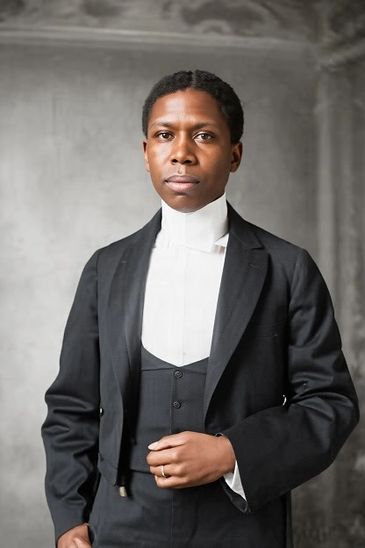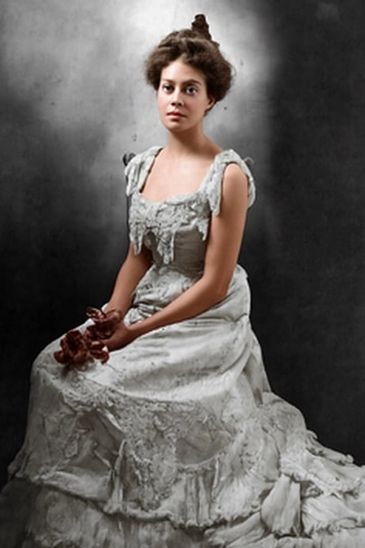Signed in as:
filler@godaddy.com
Signed in as:
filler@godaddy.com

1872-1906
Dayton, Ohio
Dunbar was born free to ex-enslaved Africans, Matilda and Joshua Dunbar. He was a prolific poet, short story writer, novelist, writer of articles, dramatic sketches, newspaper editor, and wrote plays and lyrics for musical compositions.
Motivated by his parents storytelling and various European poets, he created poe
1872-1906
Dayton, Ohio
Dunbar was born free to ex-enslaved Africans, Matilda and Joshua Dunbar. He was a prolific poet, short story writer, novelist, writer of articles, dramatic sketches, newspaper editor, and wrote plays and lyrics for musical compositions.
Motivated by his parents storytelling and various European poets, he created poetry in the northern English dialect about life, love, nature, people he knew, the injustices of slavery and on race relations in his day.
His highly skilled and graceful use of southern dialect poetry was very popular for its humble, yet proud wisdom and philosophy on human nature.
Beyond his literary achievements, Dunbar dispelled the myth that Africans in America were unable to be educated. He was also mentored and hailed by Frederick Douglas as the most promising poet of his day and the "Poet Laureate of the Negro race."

Controversial and thought-provoking, he often praised African-Americans, rather than attack Europeans, in much of his work.
Dunbar was a forerunner to the Harlem Renaissance era in American Literature and he motivated writers like James Weldon Johnson, Langston Hughes and Zora Neale Hurston to compose in the language of ordinary folk.
Controversial and thought-provoking, he often praised African-Americans, rather than attack Europeans, in much of his work.
Dunbar was a forerunner to the Harlem Renaissance era in American Literature and he motivated writers like James Weldon Johnson, Langston Hughes and Zora Neale Hurston to compose in the language of ordinary folk.
Dunbar is recognized as the fore father and first free man of color to self-publish and read his works in public. Dunbar was also one of the first American poets to make a considerable living from his appearances in the US and England.
In the opinion of Oni Lasana, "Dunbar is to America what Shakespeare is to English literature and he is the father of the spoken word movement in America."
Oni gives thanks to Bob Jones of The Coatesville Cultural Society of Pennsylvania for mentoring her in performing Dunbar's works.

Dunbar married author, writer, poet and activist for woman rights, Alice Ruth Dunbar of New Orleans. They lived in Washington D.C. while he was employed at the Library of Congress. They had no children.
Maya Angelou, one of many writers and poets he influenced, titled her autobiography "I Know Why The Caged Bird Sings" from the opening l
Dunbar married author, writer, poet and activist for woman rights, Alice Ruth Dunbar of New Orleans. They lived in Washington D.C. while he was employed at the Library of Congress. They had no children.
Maya Angelou, one of many writers and poets he influenced, titled her autobiography "I Know Why The Caged Bird Sings" from the opening line of his most popular poem, Sympathy.
Sympathy is included in the finale of "Doin' Dunbar as 'Lias' Mother" program as a "rap along" with audience participation. It is also a featured poem taught to students in the Brother Dunbar Performance Workshop.
Dunbar gained international attention before his death from tuberculosis at the age of 33. Many schools and public buildings are named in his honor.
His portrait was the first African American to be featured on the US Postage stamp. Paul Laurence Dunbar's home stands as an historic state landmark and museum in Dayton, Ohio.
You are invited to our free WEEKLY meetup on ZOOM where we research and discuss his life and career.
We develop virtual programs featuring his southern and northern spoken word poetry.
Dunbar's literary gems hold themes of timeless love, nature, pathos and laughter.
We welcome you to join in the adventure.
Nominated by The Love of Dunbar Collective for a Posthumous Pulitzer Prize Special Citation in 2026
In Summary:
Paul Laurence Dunbar’s voice helped shape American literature at its core. His legacy continues to inspire, educate, and uplift. A Pulitzer Prize Special Citation would enshrine his contributions among the most honored in the nation’s cultural history.

Presents THE CHANGE HAS COME...Dunbar Lives!
"It's very very difficult to help students to see him as the great poet he is.
Not just a jingle tongue that mistakenly is seen as pleasing others nor as just the angry man who "Wears The Mask."
Dunbar as we know was the first person of significance to call African American youngsters "little brown babies" which to a people who's children had gone from chattel to pickaninny's as one poet put it "alligator bait" Dunbar was revelatory."
PROFESSOR NIKKI GIOVANNI, Virginia Tech University

Featuring Dunbar's most beloved southern dialect poems; In The Morning, When Dey 'Listed Colored Soldiers, The Party, When Malindy Sings, Angelina and more.
A Literary & History collectors item.

Interactive workshop focuses on the life of Paul L. Dunbar and his use of German, Irish, Standard and dialect English.
Photo: Featuring Timi Tanzania as Elias
with students of Virginia Tech University

Oni with storytellers, Jean "Omuwuma" Moss, Sister Kwanzaa and Mitch "Grand Daddy" Capel, a fellow "Dunbarian" who is Dunbar's voice at his museum in Ohio.
Enjoying the National Association of Black Storytellers Conference & Festival, Philadelphia, Pennsylvania 2016
Storytelling ~ Theater ~ Language Arts ~ Music ~ History ~ Wellness
© 2026 Oni Lasana Productions
All Rights Reserved
This website uses cookies. By continuing to use this site, you accept our use of cookies.